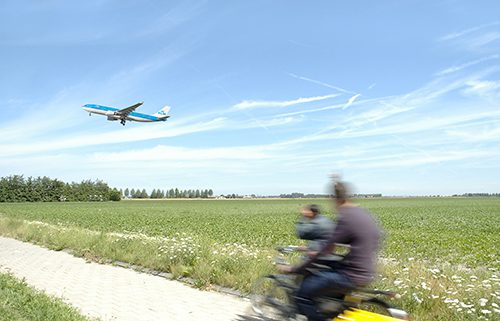Making air traffic more sustainable is one of the major challenges in the aviation sector. Among other things it necessitates designing new aircraft concepts that consume less fuel and reduce emissions. How can you design innovative aircraft as quickly as possible at the lowest possible cost? Within the European Horizon 2020 project called AGILE (Aircraft 3rd Generation MDO for Innovative Collaboration of Heterogeneous Teams of Experts), work is in progress on innovative and efficient design methods aimed at shortening design times by up to 40%. It was recently noted at the AGILE mid-term review meeting that the project was progressing at an excellent pace. AGILE began in 2015 and ends in 2018. NLR is involved in four of the six work packages, collaborating closely with Fokker Aerostructures, KE-works and Delft University of Technology.
Designing an aircraft is a complex process with a variety of different experts collaborating on a single design, such as specialists in aerodynamics, materials structure science and propulsion techniques. Collaborative engineering is about bringing together multidisciplinary knowledge and making it accessible so as to optimise the design process and thus save time and money. Under the banner of ‘Knowledge Based Engineering’, the knowledge already gained is constantly being supplemented by the most recent information. Digital information exchange and computer simulations play a major role in this process. NLR’s contribution is focused among other things on developing design methods and managing data and associated software, as an extension to NLR’s collaborative engineering capabilities.
AGILE, is also part of the European Horizon 2020 programme, which is aimed at promoting European research and innovation. The AGILE project team consists of sixteen partners from Europe, one from Canada and two from Russia, drawn from industry, research institutes and universities. The team’s composition reflects the heterogeneous structure that characterises today’s design teams in the aircraft industry. AGILE has a budget of € 9 million, including € 7 million awarded by the European Commission.



